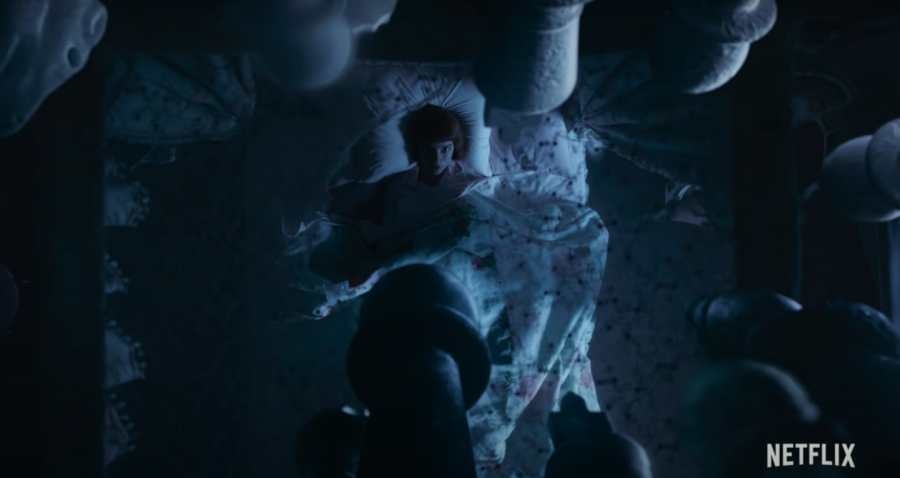‘The Queen’s Gambit’ proves that chess isn’t as boring as it seems
Beth Harmon (Anya Taylor-Joy) is an orphaned chess prodigy, who resorts to playing chess in her mind when she doesn’t have access to a chess board. These hallucinations haunt Beth throughout her journey to become the best chess player in the world.
I knew absolutely nothing about chess going into “The Queen’s Gambit,” but that didn’t stop me from binge watching the entire series in one day.
Netflix’s latest release is a fascinating and addicting look into the world of chess in the 1960s through the eyes of a young orphan, Beth Harmon. Over the seven-episode show, we follow her journey to becoming the best chess player in the world and witness as she gets drawn into the dark underbelly of the chess community. “The Queen’s Gambit” is one of the most captivating series to come out this year, thanks to its innovative premise combined with incredible acting and engaging visual effects.
Chess can be a difficult and confusing game, but the show succeeds in familiarizing its viewers with it in a way that feels natural. This is due in part to the mesmerizing acting of Anya-Taylor Joy, who plays Beth –– the board itself might be unintelligible, but we can read the struggle clearly in her face and posture. We also get to look into Beth’s head as she makes calculations during her games. Beth’s quirks make her a compelling and realistic character that fixes viewers in their seats, unable to look away.
The show also has complex and dark elements and themes. Beth becomes unhealthily obsessed with becoming the chess world champion, consumed by wanting to win every game, while also struggling with mental health and addiction. A huge part of Beth’s journey is an emotional one –– she can’t master chess until she overcomes her battle with addiction. However, Beth is self-reliant to the point of peril, so that she struggles with asking others for any help at all, instead putting up an aggressive front in order to keep people from getting too close to her. This self-reliance leads her to form and then subsequently destroy relationships with everyone in her life.
As Beth wrestles with this, the cinematography changes to visually represent her struggles. The show’s look is unique, with a shadowy and dark aesthetic that gives off an eerie, anxiety-inducing vibe. There are also stunning visual effects, my favorite of which being the hallucinated mirrored projection of a chess board that appears on Beth’s ceiling when she plays chess in her head, a side effect of the drugs that she takes.
Beth’s position as a female in the male-dominated world of chess offers another nuance to her character. It would have been easy for the writers to turn her into an “I’m not like other girls” archetype, but instead, they created a compelling female character that is strong because she is feminine. In a particularly compelling scene, Beth is being interviewed by a chess magazine, and though all she wants to talk about is the game itself, the questions keep coming back to her being a girl. Beth eventually gets fed up with the questions, reflecting how strong-willed her character is, and how she refuses to be boxed in by gender stereotypes. The show never makes Beth compromise her femininity. On the contrary, as the show goes on, her personal style develops more and she sports eye-catching outfits, a sharp contrast to the suit-heavy world of chess, and make-up that highlight it.
As we follow Beth’s enthralling journey from her start as an orphan in the basement of an orphanage to chess competitions in Paris, with everything finally culminating in the world championships in Moscow, “The Queen’s Gambit” reveals the surprisingly interesting and irresistable world of chess. The show is a beautiful exploration of a found family; born an orphan, Beth finds her family in the people she’s met through chess, whether that be a childhood best friend, janitor-turned-chess teacher, or fellow chess-obsessed allies. She finally accepts that she doesn’t need to be alone anymore, and that she has to come to terms with her past in order to have a future where she gets to do what she loves: play chess.




